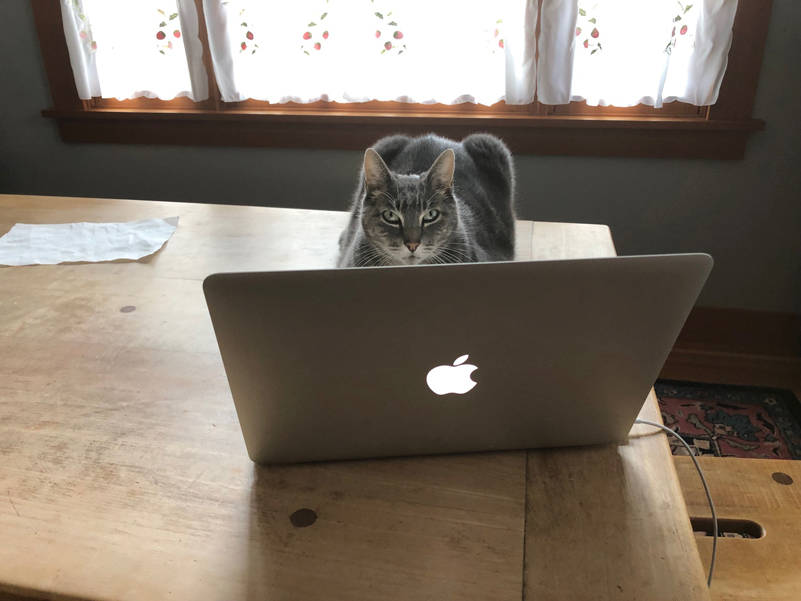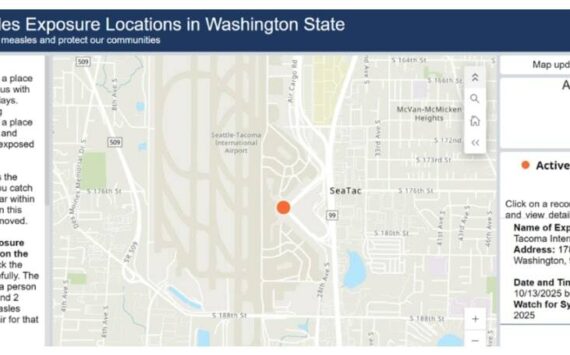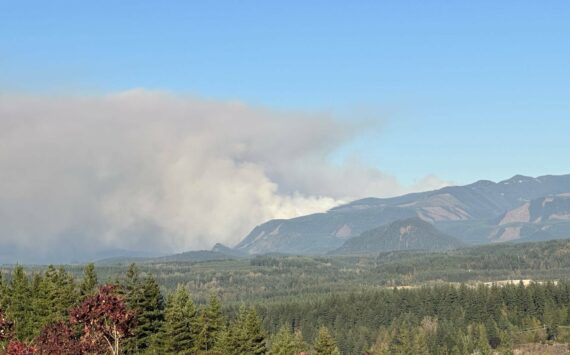By Morf Morford
Tacoma Daily Index
I first worked remotely in the early 1990s. We called it Distance learning back then.
I taught classes for City University. I never met my students, or my supervisors or even other teachers.
Several years later, for about five years beginning in 2005, I wrote a bi-weekly blog for an English as a Second Language company. I never met the people who hired me – or paid me.
I never would have guessed that model would be the norm for work in the 2020s.
For many, perhaps most jobs now, it does not matter where you are based. You may, or may not, ever meet the people you “work” with.
I know people who do hiring for companies now. No one needs to meet IRL (In Real Life).
People can work, hold meetings, have seminars or do almost anything from anywhere.
It doesn’t matter, in many cases, where you are.
Cities used to be the center of work, commerce and financial activity of all kinds.
The first principles of real estate were location, location, location.
Major cities, from New York to San Francisco to Tokyo and London, were the centers.
But now, recording, business deals and education, among many other things, can happen anywhere.
Companies don’t need big office suites. Workers don’t need to commute. We don’t need to ever meet the people we hire, work with or work for.
The most expensive cities in the world are emptying out. There’s literally no reason to live there.
Urban office space is being abandoned even more quickly than it was being built just a year or two ago.
Locally, REI put its brand new, not yet occupied Bellevue headquarters on the market so it can focus on a less centralized location, branching out into smaller satellite campuses around Seattle and permanent remote work.
What seemed like a great idea just a few years ago, is suddenly unworkable.
Who can’t work from home?
Only the most “essential” workers are place-bound.
Like almost every word or phrase now, the word “essential” has an entirely different meaning than it did even a few months ago.
It used to mean important or most preferred. It has come to mean basic, near life-support services.
For weeks, (or is it months?) now, my neighborhood has been deathly quiet – no children playing, no traffic and even few people working in their yards. The only signs of life have been the constant scurrying of delivery trucks.
They deliver everything from groceries to medical supplies to, well, almost anything.
We buy, spend, work, have medical appointments and presumably go to school, remotely.
Of all the “new normals” we are encountering in 2020, this is certainly the one with the most enduring repercussions on our cities, lifestyles and families.
An old friend of mine has an email address that is “neplace” (pronounced any place). He has lived and worked all over the country and in more than 80 countries. For his work, for many years now, location has been the most irrelevant factor.
In fact, when you think about it, virtually all of the key elements of traditional employment have evaporated; when was the last time you saw “reliable transportation” or “must be able to lift ten pounds” or “must be able to stay on your feet for extended periods” as part of a job description?
For better or worse, the world of work, the world of health care, education and everything it seems, has changed – but not just changed – it has become transformed.
Time, distance, and even relationships are no longer what they have always been, through virtually all of human history.
But in some ways, we are returning to ways of livelihood and self-sufficiency that are even more enduring.
Before the Industrial Revolution, before cities and factories, before massive, urban, centralized economies, the world operated on, depended upon, tiny clusters, guilds of masters of their crafts.
These people, men and women equally, created, built, repaired and even cured from their home or someone else’s, and did their work without offices, commutes or central headquarters.
And as you might expect, in a more “home” centered economy, home offices, home gyms, even home schools are a high priority – as is everything to equip such things. Work-out equipment, lap-top computers and desks are in high demand.
Everyone, if they can, from workers to students to news anchors, is working from home – or at least not from the usual site of office or classroom.
And home, especially the home office is not what it used to be.
Every nook, patio, back yard or spare room is being reconfigured to make it more work-friendly.
Will a home office be more like an office in your home, or will it look and feel more like your home in your work space? In other words, do you want it to look like an office, or like a room in your house with a computer and phone in it?
But it is not just home that is in flux.
The standard markets, from travel and tourism to real estate, are in free-fall or a state of uncertainty unimaginable even a few months ago.
Who wants to go on a cruise now? What will vacations look like, even next summer?
Will Airbnb still exist? Will Uber and Lyft still be around?
And who would have foreseen the resurgence in bicycles? Or home cooking? Especially baking?
Will more and more of us spend more time and money away from home, or will we decide that we actually like being at home?
Will the housing market tilt toward renters as more and more of us have no reason to stay in a single region?
Or will more of us become home owners, with our homes designed for more full-time use as in work, school and family time?
Will any of us want, or be even remotely (no pun intended) satisfied with a tiny, over-priced apartment in a major urban center?
Will we ever go back to going to movies or major sports events? Or will we all stream them at home?
Are business conventions a relic of the past?
It’s difficult to believe that anyone will miss long commutes, but do we really want to be at home all the time? Or is our core definition of home becoming completely inverted?
Many of us railed against the 9 to 5 work day and the Monday to Friday work week, but do we really want to be at work, or somehow tethered to it 24/7?
Working remotely is still working.
The traditional question on meeting people, for decades has been “What do you do?” After 2020 the more important question might be where you work – not which company, or even what industry, but where, as in home, coffee shop, local park or office.
As with everything else, work is completely different than it used to be.






